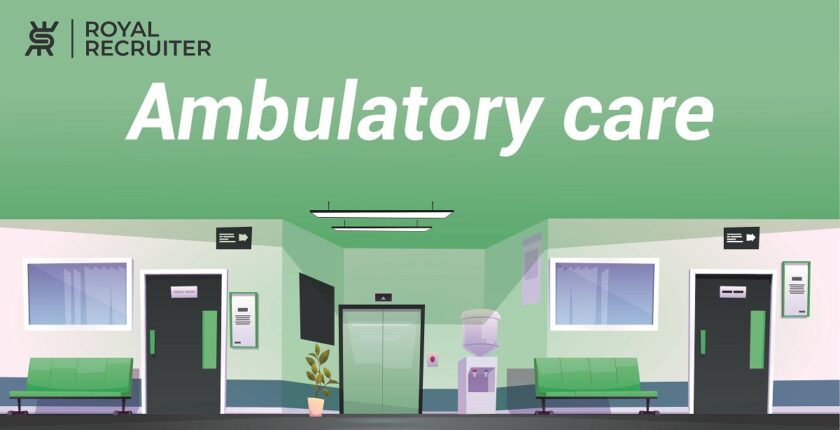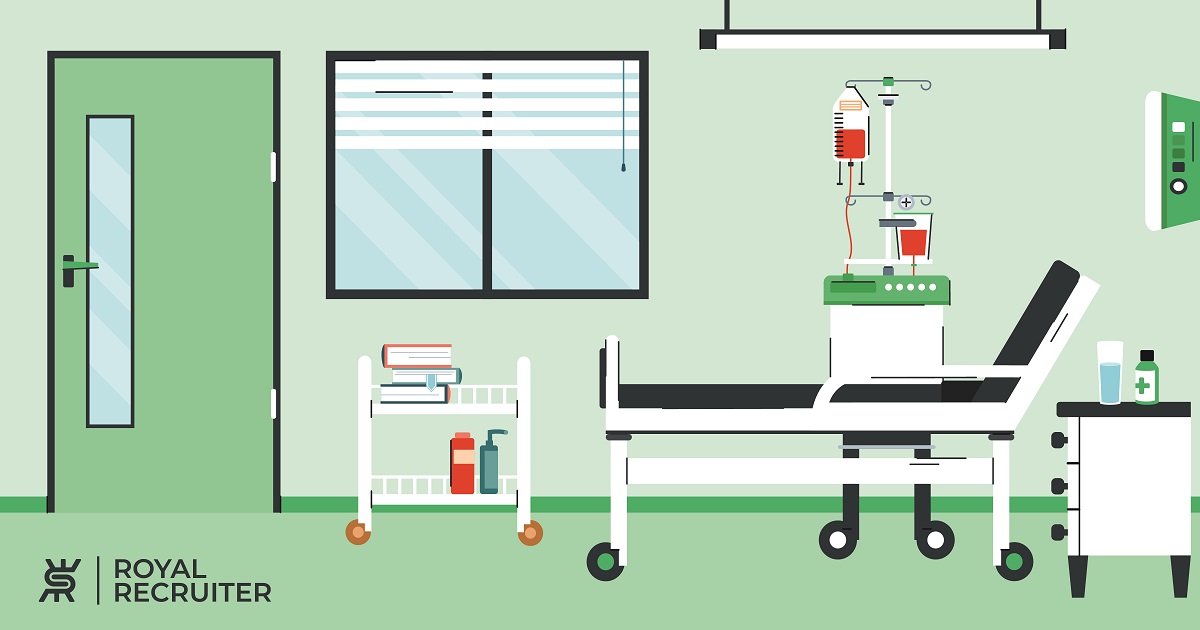Ambulatory care pharmacist: Responsibilities, Career, and Salary

In This Article
At present, working in ambulatory care as a pharmacist will be a nice decision as the number of patients visiting and ambulatory care facilities is increasing.
In the medical care industry, there is no such position available that is as captivating as a pharmacist, and the career of a pharmacist gets even better with ambulatory care.
The responsibilities of a pharmacist in Ambulatory Care are the same as in other Sectors. However, salary in this field for experience can go as high as $130,000 per year!
Read to know more information about the ambulatory care pharmacist career, which can help you build a career on this path.
What Is Ambulatory Care?
Before delving into the career of a pharmacist in ambulatory care, first, let’s know what ambulatory care is. Ambulatory care is a medical facility where you can get almost all kinds of medical treatments without having to stay overnight. This means patients who visit ambulatory care can get treatment and go home within the same day.
And you’ll find every type of medical care professional such as Doctors, Nurses, Nutritionists, and medical technologists in ambulatory care to provide medical services to patients.
Services that ambulatory care provides:
- Surgeries
Ambulatory care performs surgeries that don’t require the patients to stay in the facility. The most common surgeries done in ambulatory care are Hernia, gallbladder, Knee, and other Joint Replacement.
- Diagnostic services
In ambulatory care, patients can undergo any of their tests recommended by doctor(s) like X-ray, ultrasound, biopsy, endoscopy, and many more and get reports from authorized doctors working in the facility.
- Emergency Service
People can get emergency medical services in ambulatory care that are not severe or need to get hospitalized.
- Basic Medical Care
Ambulatory care is famous among patients because they can get the basic medical treatments from doctors without waiting in a long queue or taking appointments days ago to meet the doctor.
Your Career As A Pharmacist In Ambulatory Care
Thousands of people visit ambulatory care facilities to take treatment every day. As a result, everyone, including nurses, doctors, technicians, and pharmacists, has a hectic schedule and stays busy as a beave.
So, how will you spend your working days, and what will your responsibilities be in ambulatory care? Let’s find out.
- Educating Patients And Their Family About Health
Ambulatory care pharmacists provide guidance to the patients and their family members regarding how they can take care of themselves and mitigate the illness as much as possible.
- Work With Doctors To Prescribe Medicine
Not all kinds of medicine suit everyone; some medicine causes bad effects on the patient’s body. Ambulatory care pharmacists consult with the doctor when they prescribe medication and ensure that the prescription entails no medicine that can cause harm or side effects to the patients.
- Monitor Drug Interactions
A primary duty of an ambulatory care pharmacist is to monitor how drugs are acting on patients’ bodies. If the pharmacist tracks or figures out any changes in the patient body, they will contact the doctor to change the prescribed medicine.
- Checking patient’s On-Going Medicine Course And Dose
You’ll get many patients who have ongoing medicine courses. As a pharmacist, you’ll be required to find out by communicating with the patients and their attendants whether the patient is taking those medicines accordingly or not.
- Educating Your Co-workers
In your workplace, you’ll work with nurses, technologists, and other healthcare providers, and you’ll have to teach them how they can take care of the patient in a good manner. And what sort of medicine they can use while taking care of the patients.
- Recoding Patient Data
When you visit or meet with patients during your shift, you must record their data, which helps track their health status when they make future visits.
How To Become an Ambulatory Care Pharmacist
Being an ambulatory care pharmacist is the same as being a pharmacist who works in hospitals or other medical facilities. The main difference is that you’ll be more familiar with medicine, medical terms, and treatments used in ambulatory care.
Let’s see the prerequisite you will need in order to become an ambulatory care pharmacist:
Education:
As The bachelor’s of pharmacy degree is not available in the U.S. anymore, you’ve to follow a different track to become a pharmacist. First, you’ve to complete pre-professional coursework, which usually takes 2 to 4 years. Then you’ve to earn a PharmD (Doctor of Pharmacy Degree) to begin your career as an ambulatory career pharmacist.
Get Training:
Before landing a full-time job in ambulatory care as a pharmacist, you’ll have to get hands-on experience. And to gain real-time knowledge, you can opt in for the PGY-1 (Postgraduate Year-1) program, where you can learn and implement what you’ve learned during graduation.
Become Licensed:
A pharmacist has to acquire two licenses after getting enough experience to become job-ready. The certifications are
- North American Pharmacist Licensure Examination (NAPLEX)
- Multistate Pharmacy Jurisprudence Exam (MPJE)

How To Become an Ambulatory Care Pharmacist
Being an ambulatory care pharmacist is the same as being a pharmacist who works in hospitals or other medical facilities. The main difference is that you’ll be more familiar with medicine, medical terms, and treatments used in ambulatory care.
Let’s see the prerequisite you will need in order to become an ambulatory care pharmacist:
Education:
As The bachelor’s of pharmacy degree is not available in the U.S. anymore, you’ve to follow a different track to become a pharmacist. First, you’ve to complete pre-professional coursework, which usually takes 2 to 4 years. Then you’ve to earn a PharmD (Doctor of Pharmacy Degree) to begin your career as an ambulatory career pharmacist.
Get Training:
Before landing a full-time job in ambulatory care as a pharmacist, you’ll have to get hands-on experience. And to gain real-time knowledge, you can opt in for the PGY-1 (Postgraduate Year-1) program, where you can learn and implement what you’ve learned during graduation.
Become Licensed:
A pharmacist has to acquire two licenses after getting enough experience to become job-ready. The certifications are
- North American Pharmacist Licensure Examination (NAPLEX)
- Multistate Pharmacy Jurisprudence Exam (MPJE)
Skills Of Ambulatory Care Pharmacists
If you possess a few technical and soft skills, you’re going to enjoy your work on this career path. However, most of these skills you’ll obtain while studying in pharmacy school, and these skills will hone automatically while you serve ambulatory care.
- Multitasking
- Communication
- Patience
- Pay Close Attention To Minor Changes
- Team Work
- Time Management
- Positive Attitude
- Technological literacy
- Counseling skills
- Organizational Skills
- Approachable

How Much You’ll Earn As An Ambulatory Care Pharmacist?
Some job seekers believe that pharmacists who work in other medical facilities rather than hospitals will earn less than those who work in hospitals. Though the situation was like this decades ago, now it has changed completely.
Nowadays, ambulatory care pharmacists make similar to what their peers make in other industries.
Newly pharmacy graduates working in ambulatory care make between $29 to $40 per hour, which is equivalent to a median salary of $60,000 to $80,000 per year.
The average salary of ambulatory care pharmacists with at least one or more years of working experience makes $80,000 to $130,000 per year.
Also, your salary will differ according to your place of employment. Below is a list of some states where they pay the highest.
- South Carolina
- Florida
- California
- Mississippi
- Arizona
- Texas
- Alabama




